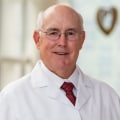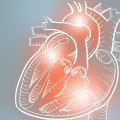A cardiologist is a health care provider who specializes in diagnosing and treating diseases related to the cardiovascular system. They can treat chest pain, high blood pressure, and heart failure, as well as problems with heart valves, blood vessels, and other heart and vascular problems. Cardiologists may order tests such as electrocardiograms, echocardiograms, and CT scans (computed tomography) to find out what is wrong. Usually, the internist will refer you to a cardiologist if you have questions about your heart health.
Cardiologists have experience treating heart failure and other conditions related to the heart and vascular system. When you see a cardiologist, they will draw up a complete medical history and perform a physical exam. Your blood pressure, height, and weight will likely be monitored, your heart and lungs will be monitored, and asked about any symptoms you have. Additional tests, such as an EKG, X-ray, or blood test, are often used to provide more information about the diagnosis. Surgery can treat and even cure a rare defect you were born with, as well as a common problem that develops over time, such as a blocked artery, a faulty heart valve, and even heart failure.
If you have a highly specialized condition, such as congenital heart disease, valvular heart disease, or chronic total occlusion, you can look for one that has special training in that area. One type of heart disease, called “broken heart syndrome” (a temporary condition that can be caused by extreme emotions and situations), is more common in women than in men. Adult congenital heart disease specialists help with the transition from pediatric to adult heart care and will schedule a first visit at any age. Cardiologists work with teams of other health care providers who treat patients with heart failure. They can help you make lifestyle changes, in addition to recommending medications (such as statins that lower cholesterol) and procedures (such as inserting stents and pacemakers, as well as ablating abnormal heart rhythms and replacing heart valves).
When your primary care doctor diagnoses you with heart disease or when it is determined that your risk of developing heart disease is very high, you will need to see a specialist.
Heart failure
(HF) is a syndrome with physiological signs and symptoms caused by a malfunction of the heart. People who are at high risk of heart disease or have been diagnosed with heart disease will need to see a cardiologist who can diagnose and treat heart disease. Heart transplant specialists also perform complex transplant surgeries that may involve removing a temporary heart pump or cleaning scar tissue, sometimes taking nine hours or more. Your doctor may request an imaging test if you have symptoms of a heart problem, such as chest pain, irregular heartbeats, heart flutters, or shortness of breath. Cardiologists treat people with all types of heart conditions including heart failure, arrhythmias, coronary artery disease, congenital heart disease, valvular heart disease, chronic total occlusion and broken heart syndrome.They can add real knowledge about the disease to their academic and clinical training. Many older Americans monitor their heart health and maintain themselves well despite a family history of heart disease. Cardiologists work with teams of other health care providers who treat patients with heart failure. They can help you make lifestyle changes in addition to recommending medications (such as statins that lower cholesterol) and procedures (such as inserting stents and pacemakers). When your primary care doctor diagnoses you with heart disease or when it is determined that your risk of developing it is very high, you will need to see a specialist.



